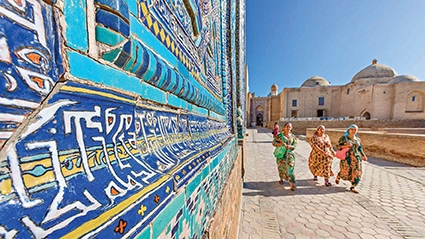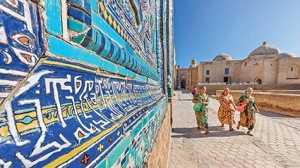Big Changes in Uzbekistan
Op-Ed
The post-Soviet space is an interesting territory for the scholars of state-building processes. Indeed, slightly more than a quarter of a century has passed since the break-up of the Soviet Union, and the majority of related countries are still experimenting with internal development. In that sense, a very interesting process is taking place in Central Asia’s, arguably, most important country: Uzbekistan, seeing changes in the country that will have a bearing on foreign relations and the overall situation in the region.
The country is in the midst of an internal struggle over who will control most resources. On January 31, it was announced that the Uzbek President Shavkat Mirzyoyev had dismissed powerful longtime National Security Service (MXX) chief Rustam Inoyatov. Inoyatov, 73, has for 23 years been in charge of the MXX and was replaced by Ihtiyor Abdullaev, a relatively inconspicuous figure.
The replacement is important as, since the death of veteran president Islam Karimov in 2016, a power struggle has been playing out between Mirzyoyev’s and Inoyatov’s supporters, and there were recent hints that the confrontation was coming to a head.
For instance, Mirzyoyev's December 22 speech to Parliament was characterized by harsh criticism of the MXX and its leadership (i.e. Inoyatov) and called for immediate reforms in the agency.
Moreover, in January this year, the rumors of Inoyatov's imminent replacement gained more traction when Mirzyoyev demanded that MXX personnel be removed from Uzbek embassies abroad.
The departure of Inoyatov ushers in a new period in the history of modern Uzbekistan. The MXX, the main successor of the Soviet-era KGB in Uzbekistan, has been regarded as perhaps the most closed and powerful security agency in the Central Asian region. Mirzyoyev now being able to replace his long-time rival means the President is now in almost full control of the country. It also means that Mirzyoyev will now be able to be more active in his reform agenda, which includes scrapping internal visas for Uzbeks willing to go abroad, liberalizing the media sector, etc.
It is also true that we do not know much of internal processes in Uzbekistan, and the changes filtered in the media allow us to make only an initial assessment of the situation. Indeed, removing a long-time rival does not guarantee that Mirzyoyev will remain liberal and more open to foreign countries.
The Georgian government should pay particular attention to Uzbekistan, as the country arguably has the most strategic location in the region. For example, Uzbekistan shares borders with all Central Asian states (Kazakhstan, Kyrgyzstan, Tajikistan and Turkmenistan) and Afghanistan, and also sits on a big part of the agriculturally rich Fergana Valley, with a sizable population as well as oil and natural gas deposits. This has meant Tashkent have at times difficult relations with Moscow since the break-up of the Soviet Union. At the same time this strategic location, as well as large resources, have enabled Uzbekistan to successfully resist Russian or other foreign pressure to enlist the country into CSTO, EEU or other regional organizations.
Uzbekistan is also important because, through its location, it is much more convenient for Russia, China and others to tame radical Islamism and its followers, which are often recruited from Central Asian workers visiting Russia. Moreover, prevention of narco- and human-trafficking from Afghanistan could also be made through Uzbekistan.
Much remains to be seen in the development of Uzbekistan, but the country will undoubtedly remain a powerful actor in the Central Asian region. As the tendency of foreign relations shows over the past several months, Tashkent’s relations with neighboring countries will further improve.
Emil Avdaliani












